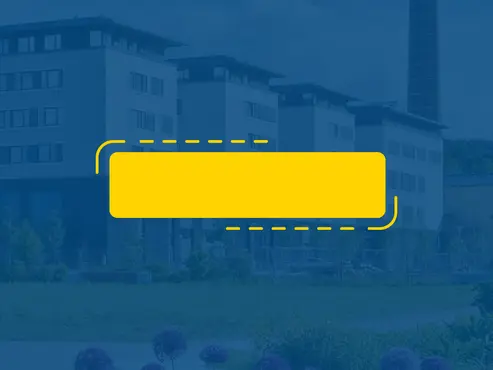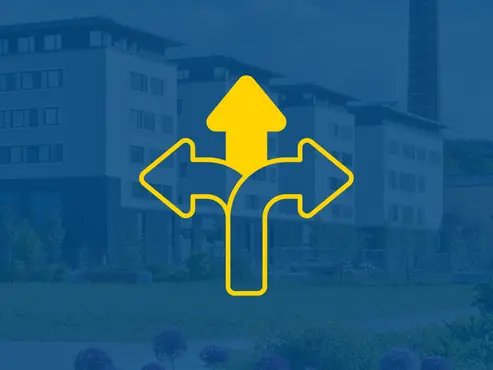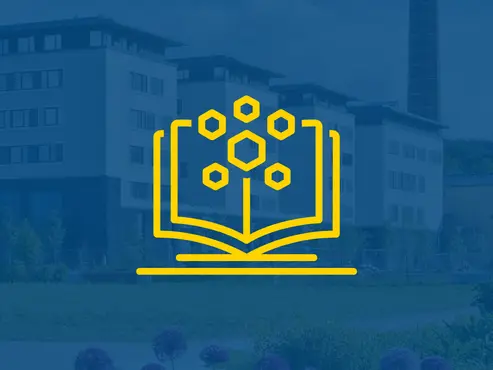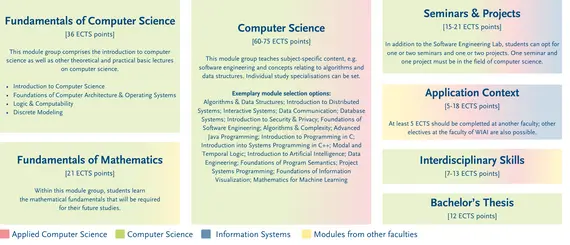Structure and Curriculum
New regulations starting in winter semester 2024/25
The start of the computer science course has been completely revamped! Additional professors have significantly expanded the range of courses on offer and established new areas of specialization. This will apply from the winter semester:

New name: The degree program is now called “B. Sc. Computer Science”.
The previous focus on “Software Systems Science” remains in the form of selectable study specializations (e.g. “Software” or “Systems”), but now there is even more!

More choices!
The compulsory program was aligned with the basic skills standardized by the German Informatics Society. This creates more room
for individual interests, new study focuses, the recognition of modules from other universities - e.g. after stays abroad or when changing degree courses - and for looking beyond the horizon and into other faculties.

New specialization available: Theoretical Computer Science
The foundation for computer systems! Do you love mathematics and want to understand and be able to prove how and why computers are able to solve the world's problems? Then this specialization is just right for you. Because nothing is more practical - and more necessary! - than a good theory.
Degree Programme Structure
The bachelor’s programme in Computer Science is based on a standard programme duration of six semesters and leads to the conferral of the Bachelor of Science (B. Sc.) degree. It provides wide-ranging elective options and therefore allows students to align areas of specialization with their own interests in various fields of software systems science, particularly in programming, software engineering and in complex and distributed systems.
The degree programme is comprised of the seven module groups outlined below.
In this module group’s compulsory courses, students are taught the fundamentals of mathematics relevant to understanding computer science methods and studies in Software Systems Science. This pertains particularly to analysis, linear algebra, propositional and first-order logic, and statistics.
[21 ECTS points]
This module group comprises an introduction to computer science as well as further basic courses on computer science. The curricula of these courses prepare the students for advanced-level lectures and cover computer architecture as well as concepts of theoretical informatics.
[36 ECTS-Points]
The compulsory modules in this group cover algorithms and data structures, distributed and interactive systems, communication, databases, security, and software engineering fundamentals. Additionally, students become acquainted with concepts of advanced imperative, object oriented, and functional programming. Furthermore, courses about artificial intelligence, data engineering, user interfaces, and the development of embedded systems can be selected. These modules aid in developing an area of focus within the degree programme.
[60-75 ECTS-Points]
This module group affords students extensive opportunities to expand their knowledge base by enrolling in courses of applied computer science, business informatics, the humanities, human sciences and education, social sciences, economics and business administration. Bearing in mind each module’s specific requirements, these may be chosen freely from each faculty’s respective catalogue of courses offered as bachelor’s degree subsidiary subjects but should bear some relevance to Computer Science.
[5-18 ECTS points]
Within the scope of soft skills, students are familiarized with research methods as well as ethics for the digital society. A compulsory mentoring guides them through their first semesters. Additionally, students may choose to take courses in project management or improve their foreign language skills, essential to future careers in fields with ever increasing international activity and cooperation.
[7-13 ECTS points]
In addition to the compulsory lab, students must take at least one seminar and project, with the opportunity to take up to two seminars and projects. At least one of each module types must stem from the subject area of computer science. These courses are meant to provide a more in-depth examination of specific topics in the areas of computer science, applied computer science and information systems relating to computer science. These courses therefore also prepare students for working on systematically organized team projects and foster key skills such as the presentation of project results or the target-oriented execution of goal-oriented, practical projects.
[15-21 ECTS points]
Within the scope of the bachelor’s thesis, students employ academic methods to work independently on a specified topic from the field of computer science. More detailed information concerning the choice of a subject area for the bachelor’s thesis can be found in appendix 2 of the subject examination regulations.
[12 ECTS points]
